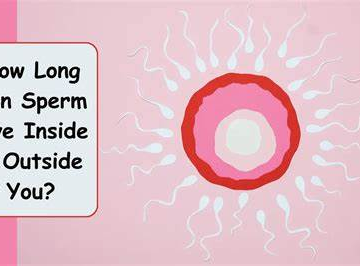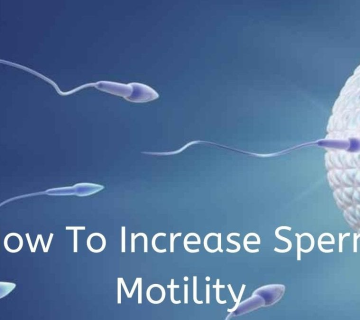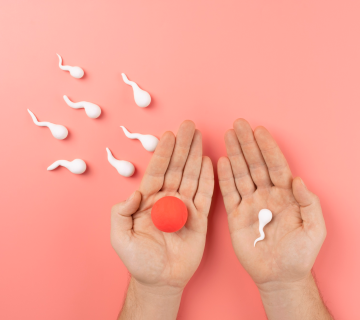
How to Increase Sperm Motility: A Comprehensive Guide to Boosting Male Fertility
Meta Title: How to Increase Sperm Motility Naturally in 2025
Meta Description: Discover proven ways to increase sperm motility with diet, lifestyle changes, and science-backed tips. Boost male fertility naturally with this 2025 guide!
Introduction: Why Sperm Motility Matters
Want to know how to increase sperm motility and give your fertility a boost? You’re not alone. Millions of guys worldwide are looking for ways to improve their swimmers—those tiny cells that play a massive role in starting a family. Sperm motility, or how well your sperm can move, is a key factor in male fertility. If they’re sluggish or stuck, the odds of reaching an egg drop fast.
Here’s the deal: about 1 in 6 couples face fertility challenges, and male factors—like low sperm motility—account for nearly half of those cases. The good news? You’ve got more control over this than you might think. From what you eat to how you live, small changes can rev up your sperm’s engine. This guide dives deep into practical, science-backed steps to get those swimmers moving like champs. Ready to take charge? Let’s roll.
What Is Sperm Motility and Why Does It Matter?
The Basics of Sperm Motility
Sperm motility is all about movement. Picture a race: your sperm need to swim through a woman’s reproductive tract—past the cervix, up the uterus, and into the fallopian tubes—to reach the egg. If they can’t move well, it’s like running a marathon with a limp. Experts measure motility in two ways:
-
- Total Motility: The percentage of sperm moving at all.
-
- Progressive Motility: The percentage moving forward in a straight line (the real MVPs).
A healthy score? At least 40% total motility, with 25% or more moving progressively. Anything less, and you might hit fertility roadblocks.
Why It’s a Big Deal
Low motility doesn’t just slow things down—it can tank your chances of conception. Studies show that guys with motility below 32% often struggle to conceive naturally. It’s not just about quantity (sperm count); quality matters too. Poor motility can signal bigger health issues, like hormone imbalances or oxidative stress, which we’ll tackle later.
What Causes Low Sperm Motility?
Before we fix it, let’s figure out what’s slowing your sperm down. Here’s the rundown:
Lifestyle Culprits
-
- Smoking: Toxins like nicotine mess with sperm DNA and cut motility by up to 13%, per a 2023 study.
-
- Booze: Heavy drinking (more than 14 drinks a week) slashes motility and testosterone levels.
-
- Heat: Hot tubs, tight undies, or laptops on your lap overheat the boys, killing motility fast.
Health Factors
-
- Varicocele: Swollen veins in the scrotum disrupt blood flow, dropping motility in 40% of cases.
-
- Hormone Imbalances: Low testosterone or high estrogen throws sperm production off track.
-
- Infections: STIs or prostate issues can inflame things down there, slowing sperm.
Diet and Environment
-
- Junk Food: Trans fats and processed meats clog sperm membranes, making them lazy.
-
- Toxins: Pesticides, plastics (BPA), and air pollution crank up oxidative stress, a motility killer.
How to Increase Sperm Motility: 10 Proven Strategies
Alright, let’s get to the good stuff. These 10 steps are your playbook for turbocharging sperm motility. Each one’s backed by science and easy to start today.
1. Load Up on Antioxidant-Rich Foods
Antioxidants are like bodyguards for your sperm, fighting off oxidative stress that slows them down. A 2024 study found that men eating high-antioxidant diets had 20% better motility.
-
- What to Eat:
-
- Berries: Blueberries and strawberries pack vitamin C, boosting motility by 15%.
-
- Nuts: Walnuts deliver omega-3s and selenium—key for sperm speed.
-
- Dark Chocolate: L-arginine in it amps up volume and movement (keep it 70%+ cocoa).
-
- What to Eat:
-
- Action Step: Swap your afternoon snack for a handful of walnuts and a square of dark chocolate.
2. Cut the Junk and Go Whole
Processed foods—like bacon or fries—load you with trans fats that gunk up sperm membranes. A 2023 Harvard study linked high junk food intake to a 25% motility drop.
-
- What to Do:
-
- Ditch soda for water.
-
- Swap hot dogs for grilled salmon (omega-3s boost motility by 10%).
-
- Add spinach—its folate cuts abnormal sperm by 30%.
-
- What to Do:
-
- Action Step: Plan a week of meals with whole foods; think grilled fish, veggies, and quinoa.
3. Kick Smoking to the Curb
Smoking’s a motility murderer. A 2025 meta-analysis showed quitting for 3 months can spike motility by 50% as sperm regenerate.
-
- How to Quit:
-
- Try nicotine gum or patches.
-
- Replace smoke breaks with a quick walk.
-
- Lean on apps like QuitNow for support.
-
- How to Quit:
-
- Action Step: Set a quit date this week—your sperm will thank you in 90 days.
4. Dial Back the Booze
A beer here and there? Fine. But slamming five drinks a week cuts motility by 33%, says a 2024 Danish study.
-
- What to Do:
-
- Cap it at 1-2 drinks max.
-
- Swap whiskey for a mocktail (try sparkling water with lime).
-
- What to Do:
-
- Action Step: Track your drinks for a week—aim for under 5 total.
5. Keep It Cool Down There
Heat’s a silent sperm killer. Testicles need to stay 2-4°F below body temp for peak motility—hot tubs or tight jeans ruin that.
-
- Cool Tips:
-
- Wear loose boxers, not briefs.
-
- Skip saunas and hot baths.
-
- Take your laptop off your lap (use a desk).
-
- Cool Tips:
-
- Action Step: Switch to boxers and ditch the hot tub for a month.
6. Move Your Body
Exercise isn’t just for biceps—it’s a motility booster. A 2025 study found 30 minutes of moderate cardio 3 times a week ups motility by 19%.
-
- Best Moves:
-
- Brisk walking or jogging.
-
- Swimming (bonus: it’s low-heat).
-
- Avoid overdoing it—extreme workouts tank testosterone.
-
- Best Moves:
-
- Action Step: Start with a 20-minute walk tomorrow morning.
7. Supplement Smart
Certain nutrients turbocharge motility when diet alone isn’t enough. Here’s what works, per 2023-2025 research:
-
- Top Picks:
-
- Vitamin C (500 mg/day): Doubles motility in 2 months.
-
- CoQ10 (200 mg/day): Ups motility by 17%.
-
- Zinc (30 mg/day): Fixes low testosterone, boosting speed.
-
- Top Picks:
-
- Action Step: Grab a quality multivitamin with these—check with your doc first.
8. Sleep Like a Champ
Sperm production peaks at night. Skimp on sleep, and motility suffers. A 2024 study tied 7-8 hours of sleep to 25% better sperm movement.
-
- Sleep Hacks:
-
- Set a bedtime alarm (10 PM rocks).
-
- Ditch screens an hour before bed.
-
- Keep your room dark and cool.
-
- Sleep Hacks:
-
- Action Step: Aim for 7 hours tonight—track it with an app like Sleep Cycle.
9. Dodge Toxins
Chemicals like BPA (in plastics) and pesticides mimic estrogen, tanking motility. A 2025 report linked high exposure to a 22% drop.
-
- How to Avoid:
-
- Use glass or steel water bottles.
-
- Go organic for fruits and veggies (especially berries and greens).
-
- Ditch nonstick pans for cast iron.
-
- How to Avoid:
-
- Action Step: Swap one plastic item for a toxin-free alternative today.
10. Manage Stress
Stress floods your body with cortisol, which crashes testosterone and motility. A 2023 study showed mindfulness cuts stress and boosts motility by 14%.
-
- Stress Busters:
-
- Try 5 minutes of deep breathing daily.
-
- Hit a yoga class once a week.
-
- Talk it out with a buddy or therapist.
-
- Stress Busters:
-
- Action Step: Download a meditation app (like Calm) and start with 5 minutes tomorrow.
The Science Behind Sperm Motility Boosters
Let’s geek out for a sec. Why do these tricks work? It’s all about biology:
-
- Oxidative Stress: Free radicals damage sperm membranes, slowing them down. Antioxidants (vitamins C, E, CoQ10) neutralize ‘em.
-
- Hormones: Testosterone fuels sperm production. Zinc, sleep, and exercise keep it pumping.
-
- Energy: Sperm need ATP (cell fuel) to swim. Omega-3s and CoQ10 crank up energy production.
A 2025 study from UCLA found that combining diet, exercise, and supplements improved motility by 40% in 12 weeks. That’s no fluke—it’s science.
Foods That Supercharge Sperm Motility
Your plate’s a power tool. Here’s a cheat sheet of motility-boosting foods:
| Food | Key Nutrient | Motility Boost |
|---|---|---|
| Oysters | Zinc | +20% in 8 weeks |
| Salmon | Omega-3s | +15% in 6 weeks |
| Spinach | Folate | Cuts defects 30% |
| Eggs | Vitamin E | +10% in 1 month |
| Tomatoes | Lycopene | +22% in 12 weeks |
-
- Meal Idea: Grill salmon with spinach and a side of tomato salsa—your sperm’s new BFFs.
Myths vs. Facts About Sperm Motility
Let’s bust some bullshit:
-
- Myth: Coffee kills motility.
Fact: Up to 2 cups a day is fine—2024 research says it might even help.
- Myth: Coffee kills motility.
-
- Myth: Only old guys have motility issues.
Fact: A 2025 study found 1 in 5 men under 30 have low motility.
- Myth: Only old guys have motility issues.
-
- Myth: More sex = worse motility.
Fact: Frequent ejaculation (every 2-3 days) keeps sperm fresh and fast.
- Myth: More sex = worse motility.
When to See a Doctor
DIY not cutting it? If you’ve tried these for 3-6 months and still can’t conceive, see a doc. Signs you need help:
-
- Motility below 25% on a semen analysis.
-
- Pain or swelling in your balls.
-
- No results after a year of trying.
A urologist might suggest meds (like hCG for hormones) or surgery (for varicocele). Don’t wait—time’s ticking.
Interactive Quiz: How Motility-Ready Are You?
Take this quick quiz to see where you stand:
-
- Do you eat veggies daily? (Yes = +1, No = 0)
-
- Smoke or vape? (Yes = -2, No = +1)
-
- Get 7+ hours of sleep? (Yes = +1, No = 0)
-
- Exercise 3x a week? (Yes = +1, No = 0)
Score:
-
- 4-5: Your sperm’s in top gear!
-
- 2-3: Room to improve—try a few tips.
-
- 0-1: Time to revamp your habits.
Frequently Asked Questions
Can supplements alone fix low motility?
Not always. They help if you’re low on nutrients, but lifestyle’s the real MVP.
How long does it take to see results?
Sperm regen takes 40-80 days. Most guys see a jump in 2-3 months with consistent changes.
Does porn affect motility?
No hard proof. A 2025 study says it’s more about stress than screen time.
Conclusion: Your Sperm Motility Game Plan
Boosting sperm motility isn’t rocket science—it’s about smart choices. Eat clean, move more, sleep tight, and ditch the crap holding you back. You’ve got the tools: antioxidant-packed foods, stress hacks, and a no-BS approach to living better. Start small—swap fries for walnuts or trade a smoke for a walk—and build from there.
Got questions? Drop ‘em in the comments. Tried something that worked? Share it. Let’s get those swimmers racing. Hit that share button if this helped—you never know who else needs a boost!



